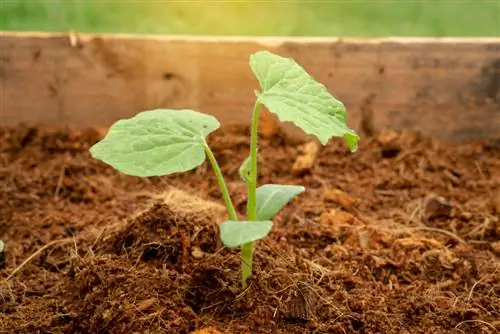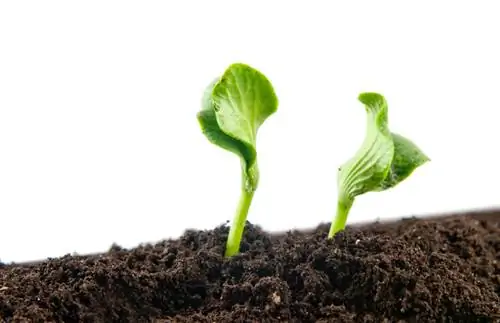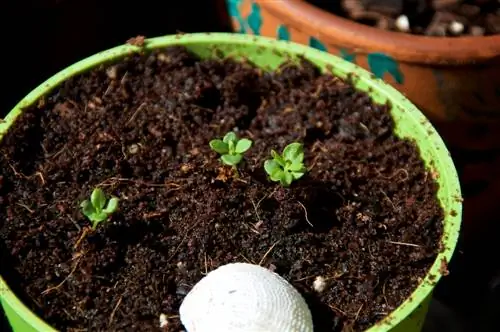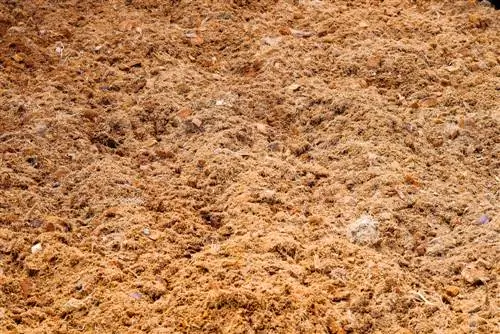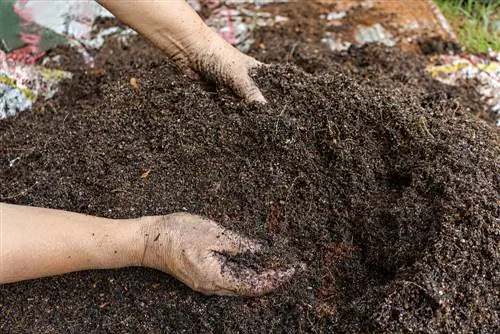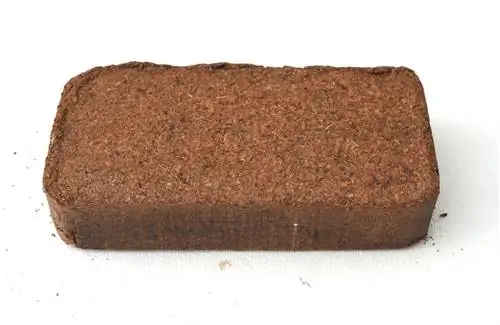- Author admin leonars@hobbygardeners.com.
- Public 2023-12-16 16:46.
- Last modified 2025-01-23 11:22.
Coconut soil is at the beginning of a steep career as an environmentally friendly substrate of the future. Unorthodox composition and innovative character raise the question of whether coconut fiber substrate is suitable for all plants. Dive into an overview of the most important uses of coconut humus as plant soil.
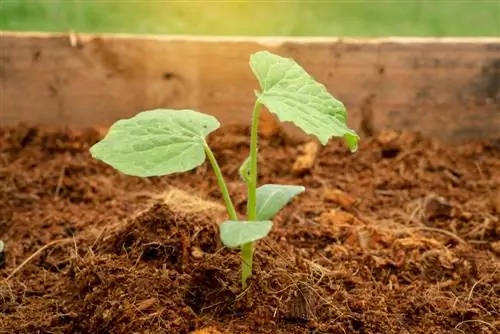
Is coconut soil suitable for all plants?
Coconut soil is suitable for many plants because it offers a loose, airy structure, water retention and a lean composition that promotes root growth. It can be used as a growing soil, soil improver or component of potting soil for houseplants, bonsai, orchids as well as vegetables and herbs.
Growing soil of superlatives
Coconut soil proves to be an unbeatable advantage for all plants that you prefer on the windowsill. Sow the seeds of vegetables, tomatoes, flowers, perennials and ornamental trees in coconut humus. The combination of a loose, airy structure, reliable water storage and lean composition motivates seedlings to rapid root growth.
Valuable building block for plant soil
Coconut soil makes a valuable contribution to he althy root growth. This property makes the natural product the ideal substrate building block for all plants that thrive in pots, boxes and buckets. The following overview would like to inspire you to enrich any plant soil with coconut fibers in the future:
- Evergreen and flowering houseplants: mix of potting soil, coconut humus and expanded clay
- Bonsai trees for living rooms and balconies: enrich Akadama with coconut fibers, lava granules and humus
- Orchids: coconut soil as an organic additive for pine bark substrate
- Vegetables, herbs and tomatoes: after cultivation as a supplementary component to vegetable or tomato soil
As a rule of thumb for a balanced combination of coconut humm and potting soil, a mixing ratio of 1:1 has proven to work well in practice. It is important to note that you let unfertilized humus briquettes soak in fertilized water before mixing in potting soil or special substrate.
Trend-oriented soil improver
Plants in beds are better protected from waterlogging if coconut fibers optimize the soil. When planting, if you enrich the excavated soil by a third with coconut soil, your ornamental and useful plants will thank you with he althy growth. Coconut buffers impending root pressure if you plant flowers and perennials in the ground as underplanting for mighty trees.
Tip
Despite all the enthusiasm for coconut soil, some disadvantages cannot be ignored. Hobby gardeners with a tight budget complain about the higher purchase price compared to conventional potting or growing soil. Private gardeners find the time-consuming preparation of humus bricks, which can take up to 60 minutes, an obstacle.

